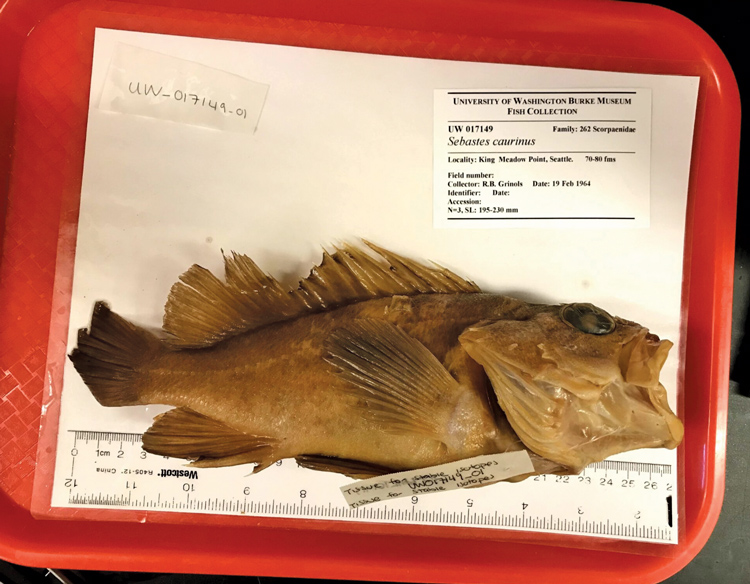Fish parasite populations decline, but it’s nothing to celebrate

This copper rockfish (Sebastes caurinus) was collected in 1964 in Puget Sound. It was part of a new study that examined specimens of eight fish species and found a dramatic decline in the number of parasites over time.
A recent UW study examined more than a century of fish specimens from the Puget Sound and found that fish parasites are far less abundant now than they were in 1880.
The data, which was developed in large part from preserved fish in the UW Fish Collection at the Burke Museum, suggests that parasites may be especially vulnerable to a changing climate.
“People generally think that climate change will cause parasites to thrive, that we will see an increase in parasite outbreaks as the world warms,” says the study’s lead author, Chelsea Wood, associate professor of aquatic and fishery sciences. “For some parasite species that may be true, but parasites depend on hosts, and that makes them particularly vulnerable in a changing world where the fate of hosts is being reshuffled.”
For parasites that rely on three or more host species during their lifecycle—including more than half the parasite species identified in the study’s fish—analysis of historic specimens showed an 11% average decline in abundance per decade. Of 10 parasite species that had disappeared completely by 1980, nine relied on three or more hosts.
“Our results show that parasites with one or two host species stayed pretty steady, but parasites with three or more hosts crashed,” Wood says. “The degree of decline was severe. It would trigger conservation action if it occurred in the types of species that people care about, like mammals or birds.”
And while parasites inspire fear or disgust—especially for people who associate them with illness in themselves, their kids or their pets—the result is worrying news for ecosystems, Wood says. “Parasite ecology is really in its infancy, but what we do know is that these complex-lifecycle parasites probably play an important role in pushing energy through food webs and in supporting top apex predators.”